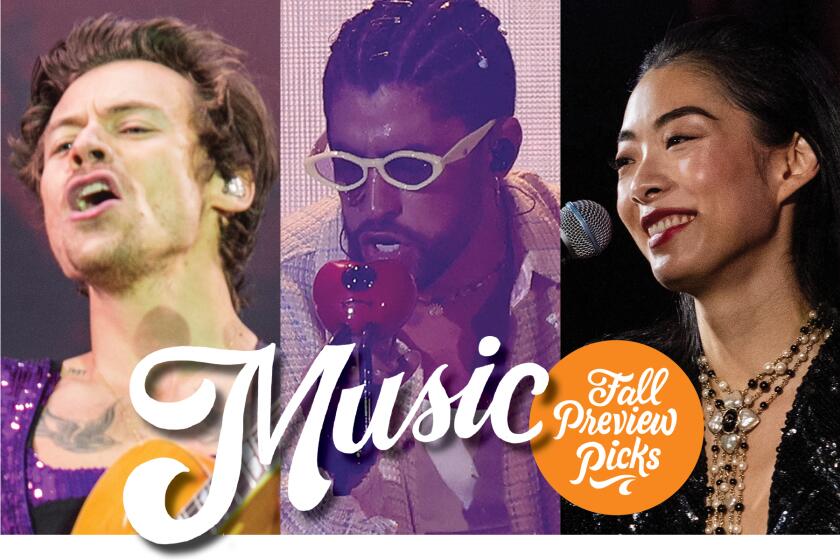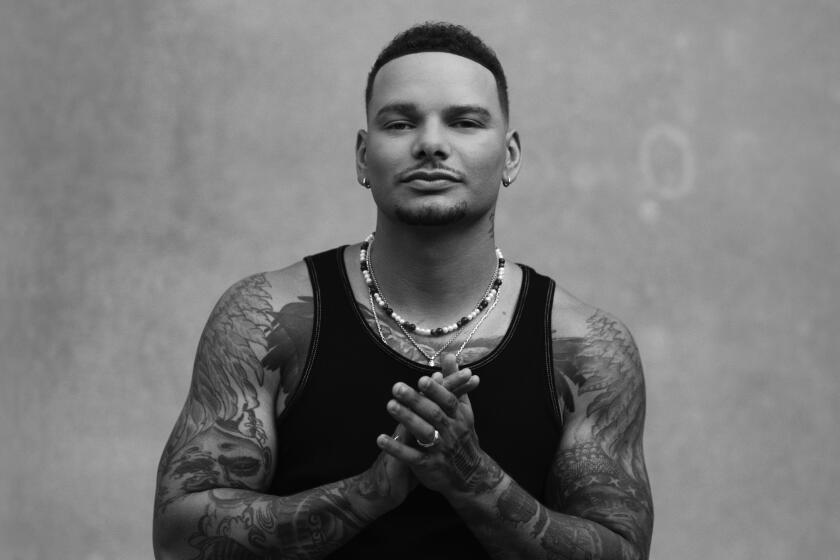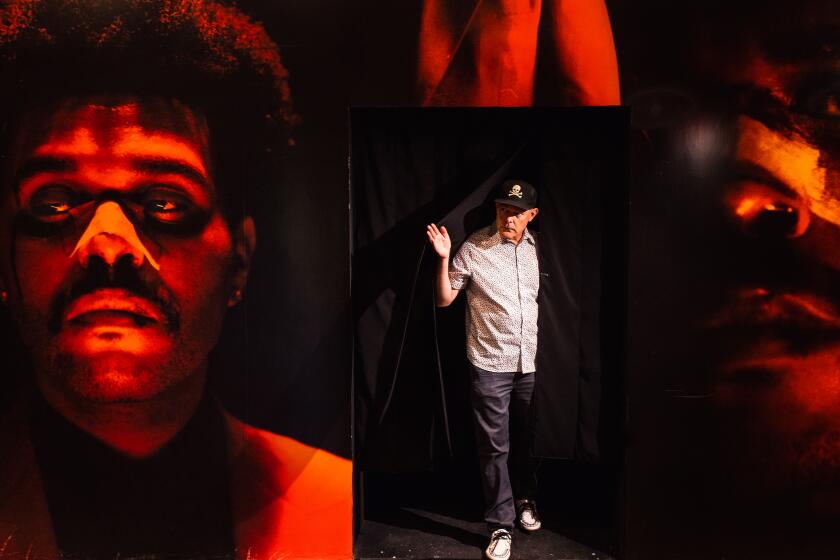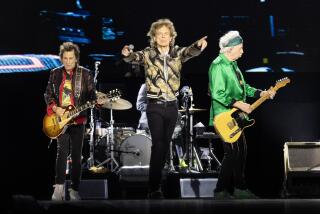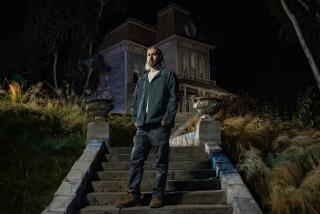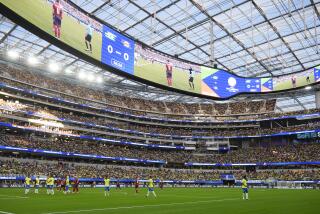The Weeknd brings dark-pop spectacle, and Lily-Rose Depp, to SoFi Stadium
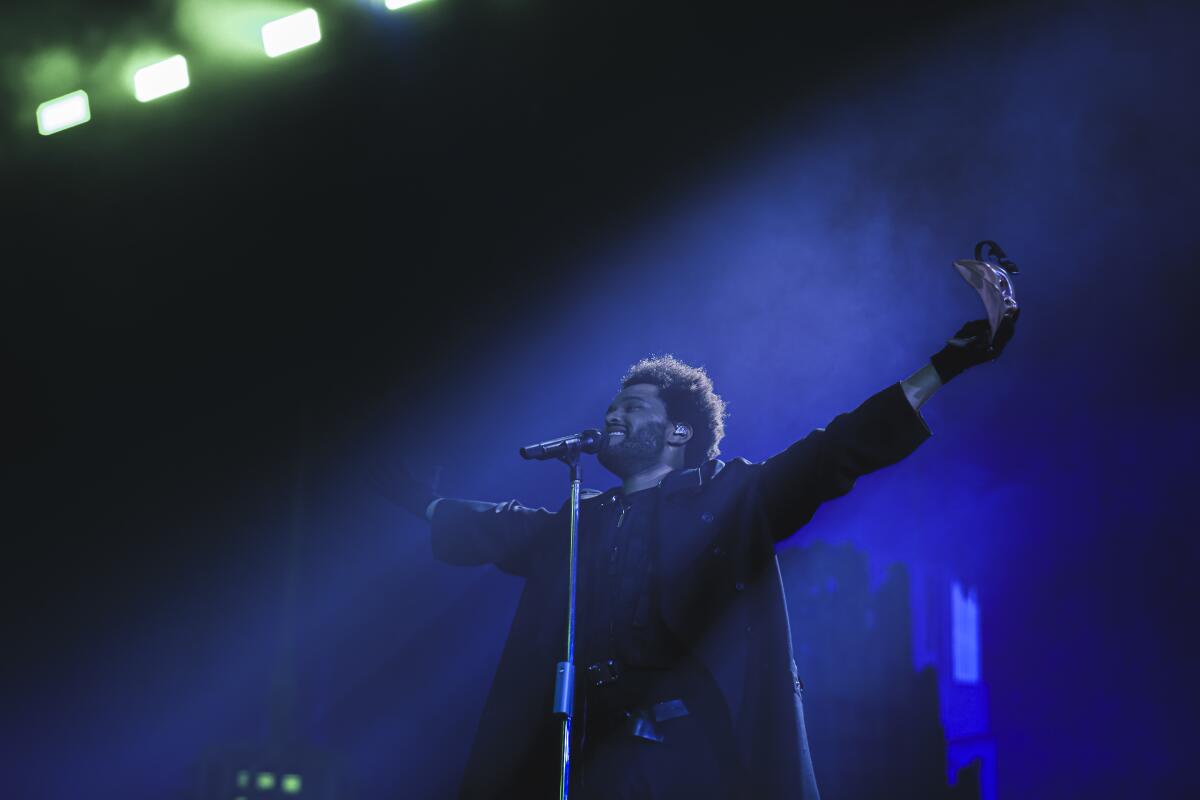
Fantasy met reality — unless it was the other way around — when the Weeknd brought his latest road show to SoFi Stadium on Friday night.
The first of two sold-out dates at Inglewood’s vast NFL palace, Friday’s concert came near the end of the so-called After Hours Til Dawn Tour behind the Weeknd’s most recent albums: 2020’s long-teased “After Hours” and “Dawn FM,” which dropped in January with just a few days’ notice. (From Los Angeles, where the Canadian singer born Abel Tesfaye has lived part time for years, he’ll head to his hometown of Toronto for the tour’s final stop.)
From artists redefining the term ‘rock star’ like Harry Styles and Steve Lacy, to OG’s such as Stevie Nicks and Elton John, fall is filled with must-hear music.
Yet the show began with a glance toward what’s next for the Weeknd as actress Lily-Rose Depp — his co-star in an upcoming HBO series called “The Idol” — appeared onstage to deliver a dramatic speech about the “tough year” she’d endured. Dressed in a flowing white gown, a cameraman circling her closely as she spoke, Depp thanked the audience for “your grace,” then added, “Tonight is incredibly special because I have the opportunity to introduce you to the love of my life — the man who pulled me through the darkest hours and into the light.”
Was Depp referring to the very ugly legal battle between her father, Johnny Depp, and his ex-wife Amber Heard? Was she beating the tabloids to reveal that she and the Weeknd are in a relationship?
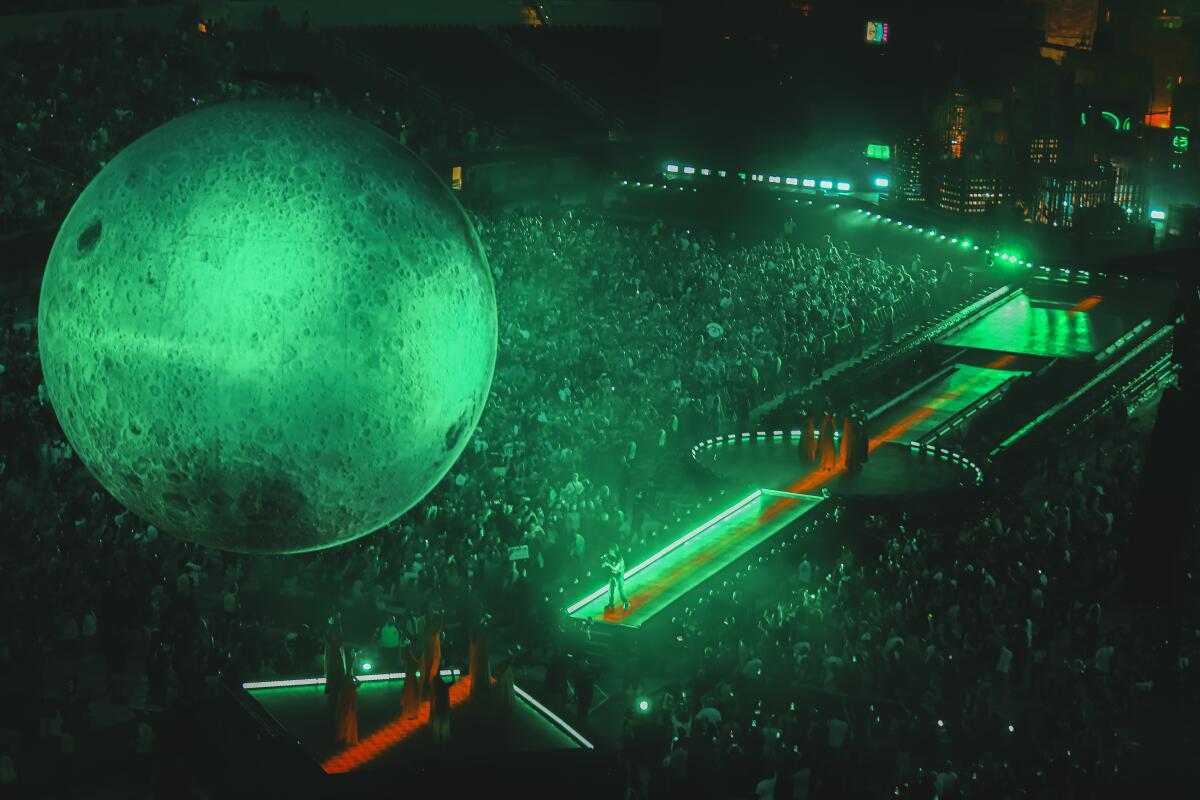
Or was the “Idol” team using the tens of thousands of would-be extras at SoFi to film a scene for their TV show, in which Depp plays a troubled pop star involved with a mysterious club owner? The actress seemed to tip her hand when she asked “Tedros” — the Weeknd’s character’s name on “The Idol” — to please join her onstage.
These types of blurred lines are central to the Weeknd’s creative enterprise. His work since 2011, when he emerged online with a trilogy of shadowy mixtapes, has depicted a sex-and-drugs demimonde populated by dissolute people living aimless lives. Yet the 32-year-old is actually one of music’s most meticulous record-makers, a connoisseur of 1980s pop and soul who surrounds his sweetly imploring vocals with glistening synths, chewy bass lines and slippery but propulsive grooves that can recall Michael Jackson and Depeche Mode. (As much a studio hound as a frontman, he made room on “Dawn FM” for a tune in which Jackson’s producer Quincy Jones monologues about his complicated life over tender, “Off the Wall”-ish funk.)
The naturally eclectic singer’s upcoming ‘Different Man’ LP toggles effortlessly between power-country, trap-pop and R&B.
At SoFi — where the Weeknd complemented his recent material with oldies like “Starboy” and “Can’t Feel My Face” along with versions of Drake’s “Crew Love” and Kanye West’s “Hurricane,” both of which feature him — the music was both crisp and pulverizingly loud; no band was visible, though the arrangements seemed to depart slightly from his records. His singing carried emotion with a laser-like intensity, particularly in the wistful “Out of Time” and “I Feel It Coming,” even amid the boomy atmosphere of a stadium.
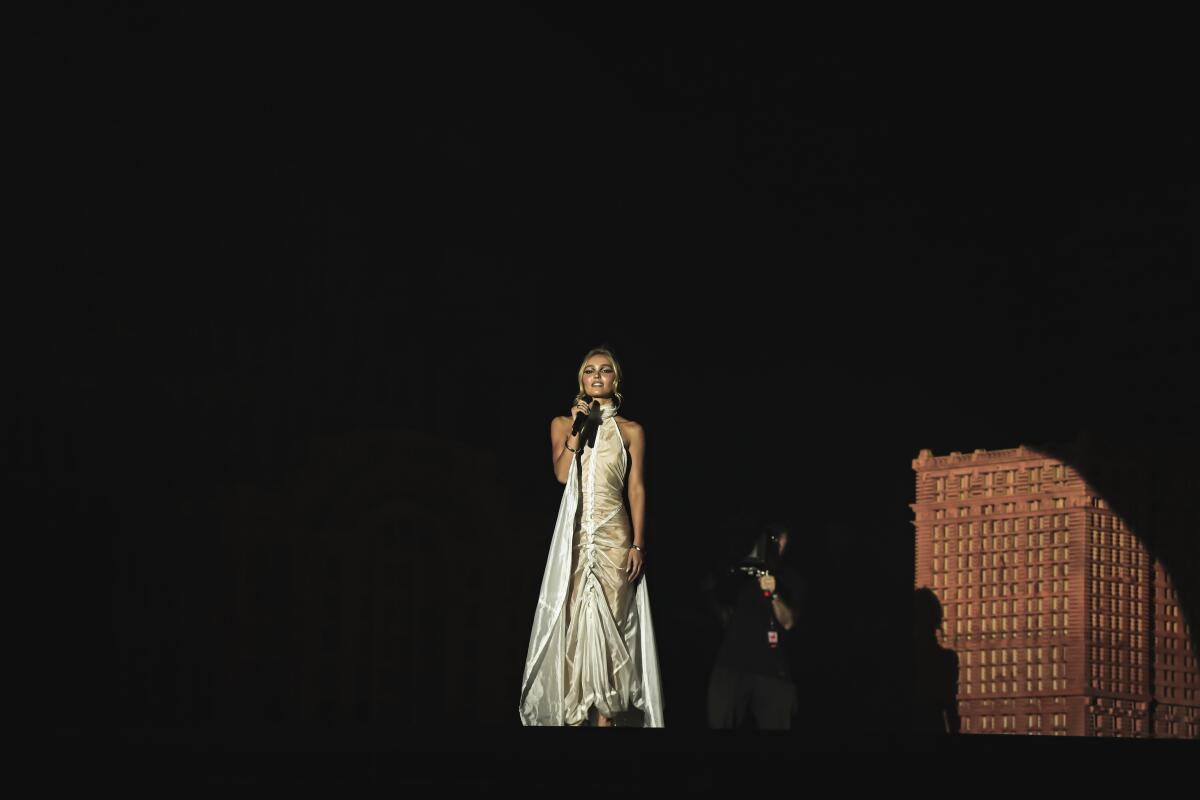
Indeed, to watch the Weeknd perform at this stage of his career — after his single “Blinding Lights” spent an unprecedented 90 weeks on Billboard’s Hot 100 — is to ponder a kind of tension of place. Nearly all of his songs unfold in small, intimate spaces — bedrooms, cars, sweaty VIP rooms — yet the scale of his success has put him in settings geared to mass consumption: the Super Bowl halftime show, which he played in 2021, for instance, or Coachella, where he co-headlined with Swedish House Mafia in April.
“Look at all those people!” he said Friday, pointing up at SoFi’s not-so-cheap seats after he thanked L.A. for supporting him since his days in “those small little venues in Hollywood.”
A strong visual thinker before he had the resources to match his ambition, the Weeknd happily fills that gap with spectacle. Here the set mixed physical construction (including a giant inflatable moon) and digital imagery to approximate a dystopian cityscape; a phalanx of dancers in hooded red robes conjured a vaguely occult vibe as they moved in formation around the singer down a lengthy runway.
The Weeknd himself began his set wearing a creepy mask that made him resemble a victim of some botched plastic-surgery procedure — yet another way of toying with ideas about authenticity and illusion. But after just a few minutes he tore the mask off to reveal the grinning nihilist within.
We talk to John Murdy, the architect of Universal’s Halloween Horror Nights, on transforming the emotional terror of the Weeknd’s music into a horror attraction.
More to Read
The biggest entertainment stories
Get our big stories about Hollywood, film, television, music, arts, culture and more right in your inbox as soon as they publish.
You may occasionally receive promotional content from the Los Angeles Times.
